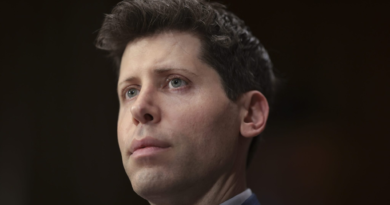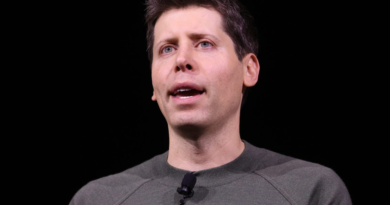Execs are rethinking how to weigh in on social issues in the face of economic headwinds
Inflationary pressures in the U.S. has led to a typical American household spending $700 more per month than they did two years ago for the same goods and services. And that’s a cause of concern for retailers like J.C. Penney.
“If you’re a family on a $75,000 household income, that means that you are making real tradeoffs in your life and having to face real choices about where you can spend your money,” said J.C. Penney CEO Marc Rosen. “Our customer is feeling stretched.”
Inflation was ranked as the second-highest external issue that CEOs expect to influence or disrupt their business strategy within the next year, according to a survey conducted in October by Fortune and Deloitte. CEOs’ expectations for growth have tempered slightly from when the survey was last conducted in June, but remains higher than a year ago.
“I think it is a result of the compounding effect of inflation, as well as geopolitical conflict and a tight labor market,” said Jason Girzadas, CEO of Deloitte U.S.
In the years since the pandemic, the U.S. economy has remained surprisingly resilient and avoided slipping into recession, even as the Federal Reserve has raised interest rates in a bid to temper inflation. The economy’s buoyancy was mostly due to the strength of consumers, who had amassed savings while staying home during lockdowns.
But there are signs the bill may be coming due. A report published by the Federal Reserve Bank of New York this week showed Americans owe more on their credit cards than ever before.
Top executives say the end of the student loan payment freeze is also a factor, especially for younger shoppers that buy brands like footwear brand New Balance. Thankfully, “they’ve seen their wages go up over the past couple of years at rates that haven’t been seen in the previous decade,” said Joe Preston, president and CEO of New Balance.
During a virtual conversation hosted by Fortune on Wednesday that focused on the economy and the future of purpose-driven leadership, CEOs broadly agreed that ESG (an abbreviation for environmental, social, and governance) is a term that’s fallen out of favor. While many shy from saying “ESG,” they maintain their aspirations to work toward a more equitable future are intact.
“While the political narrative may be more critical of things like ESG, leading organizations are having to go much deeper into creating more equitable organizations,” said Girzadas.
At Deloitte, purpose is centered on how the professional services firm and its clients can help employees achieve their full potential. Girzadas explained that this human-centric approach can involve some tasks that seem mundane, such as performance reviews and mentoring, but that can unlock a workforce’s full potential when corporations dig into the importance of equity.
“Yes, there is a lot of division and political winds that are shifting, but I actually believe there is a role for corporations and leaders of corporations to be truthful, to be authentic, and to maintain consistency in a changing world,” said Mark Newman, president and CEO of chemicals maker Chemours.
In recent years, C-suite leaders have been vexed about how and when they should weigh in on politically divisive issues, ranging from Black Lives Matter, to diversity and inclusion, to wars in Ukraine and the Middle East. Jonathan Poma, cofounder and CEO of e-commerce returns platform Loop Returns, said companies should make public statements when they can tie back to their people, customers, and core values.
“I’m from Columbus, Ohio; I’ve never been to Israel,” said Poma, in reference to the Israel-Hamas war. He acknowledged that while he understands it is a very nuanced conflict, there is value in speaking up. In October, on the social-media platform X, he said he prayed “for the humans of both nations, I pray for the downfall of Hamas, and I pray for peace and reparations.”
“The north star is empathy,” said Tony Bates, chairman and CEO of software company Genesys. “It is about listening and understanding your employees needs and your customers needs, and really being authentic to driving those back to the purpose of your company.”
The volatile geopolitical environment has led to younger workers losing faith in leadership because there isn’t consistency in how values are shared, said Alphonso David, president and CEO of the Global Black Economic Forum. Companies were quick to weigh in on the conflicts in Israel and Ukraine, but haven’t addressed tensions in Rwanda and Congo.
“That makes it very difficult for CEOs and companies to advance this value proposition in a way that’s defensible intellectually, but also defensible to all of their workforces,” said David.
With the backlash against ESG, trust in business and their commitment to sustainability has plunged, said Richard Edelman, CEO of communications firm Edelman. “Government and business are in the same low spot on sustainability,” said Edelman. The issue is that businesses have made a lot of promises as it pertains to sustainability but aren’t always clear about what has been delivered. “All hat and no cattle,” said Edelman, quoting a popular Texas putdown.
Jeff DiLullo, chief region leader of Philips North America, said employees need to see wins to believe that a bigger vision can be achieved. Philips has been carbon neutral for three years and it relies on renewable energy for 100% of its manufacturing.
“When you start to build that momentum, you build credibility and belief in your teams,” said DiLullo.
Benevity CEO Kelly Schmitt said one trend that worries her is that even the most progressive companies in her client case are pulling back from politically divisive issues. “I don’t think that saying nothing on an issue, at least internally to your people, is an option anymore,” said Schmitt.
Instead, Schmitt encourages companies to create a space to discuss complicated issues, because without civil discourse, “I don’t have that much hope that we can decrease polarization in broader society, if we can’t do it within our companies.”




